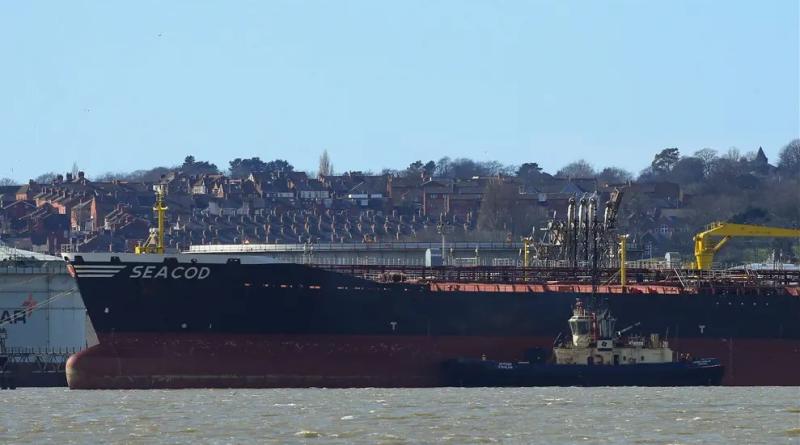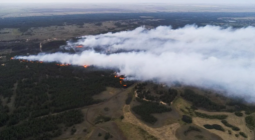Unwanted Russian oil and gas poses ‘environmental conundrum’ over methane emission risk

Exclusive: ‘This crisis keeps emphasising the problems with fossil fuels,’ Energy and Climate Intelligence Unit expert says.
Unwanted Russian oil and gas pose an “environmental conundrum” as it could lead to extra methane leaks into the environment, energy experts have said.
While the potent greenhouse gas is emitted throughout the stages of fossil fuel production, they said there was an additional risk in oil and gas tankers stranded at sea due to sanctions over the Ukraine war.
If Russia is forced to curtail its fossil fuel production, energy experts said this could also be a problem, which closed wells a “major source” of methane leaks.
“This crisis just keeps emphasising the problems with fossil fuels,” Dr Simon Cran-McGreehin from the Energy and Climate Intelligence Unit (ECIU) told The Independent.
Countries have been turning their back on Russian fossil fuels - an industry feared to be funding military action in Ukraine - since the war in eastern Europe started, with bans on these imports and plans to move away from them.
The UK blocked Russian oil and gas from its ports over the conflict. Workers have also refused to unload tankers of Russian fossil fuels - even when the boat hailed from another country - in solidarity with Ukraine.
The UK government estimates at least 10 vessels have been left searching for somewhere else to dock since the invasion. According to Reuters, one was still stranded at sea a week after being turned away from Britain.
“There is a climate risk from methane leak from these ships,” Dr Roman Sidortsov from the Science Policy Research Unit (SPRU) at the University of Sussex told The Independent.
“Storing and transporting oil whether in tankers, storage tanks, or pipelines account for about 50 per cent of all methane emissions associated with the oil sector. The longer oil is stored, the more it evaporates.”
Dr Cran-McGreehin, the head of analysis at the ECIU, said there appeared to be an “additional risk” of methane emissions from gas stuck in ships for longer than usual.
Natural gas is transformed into liquid natural gas when it is transported on a ship and gradually leaks out. He said there tends to be less losses when it enters the gas system on land.
Dr Cran-McGreenhin said this was likely “a better situation than having it sitting at sea and evaporating off in tanks”.
He added: “If no-one’s willing to use this Russian gas... it poses a real environmental conundrum.”
Since Russia invaded Ukraine, it has faced backlash and sanctions from the international community - including on its fossil fuel industry.
The UK said it would phase out Russian oil by the end of the year, and consider how to reduce imported gas further.
The European Union has vowed to end all imports of Russian fossil fuels before the end of the decade, while the US announced a ban on its oil imports on Tuesday.
In light of reducing international demand, Dr Sidortsov said: “The situation with British ports is just the beginning.”
The senior research fellow in energy justice said: “They will have to curtail production at some point as I seriously doubt that they will be able to maintain of this level of export.”
It is common to close down wells, he said. “Shut-in wells, especially if they have not been shut in properly are major sources of methane emissions.”
The UK government has been approached for comment.
Author:Zoe Tidman





